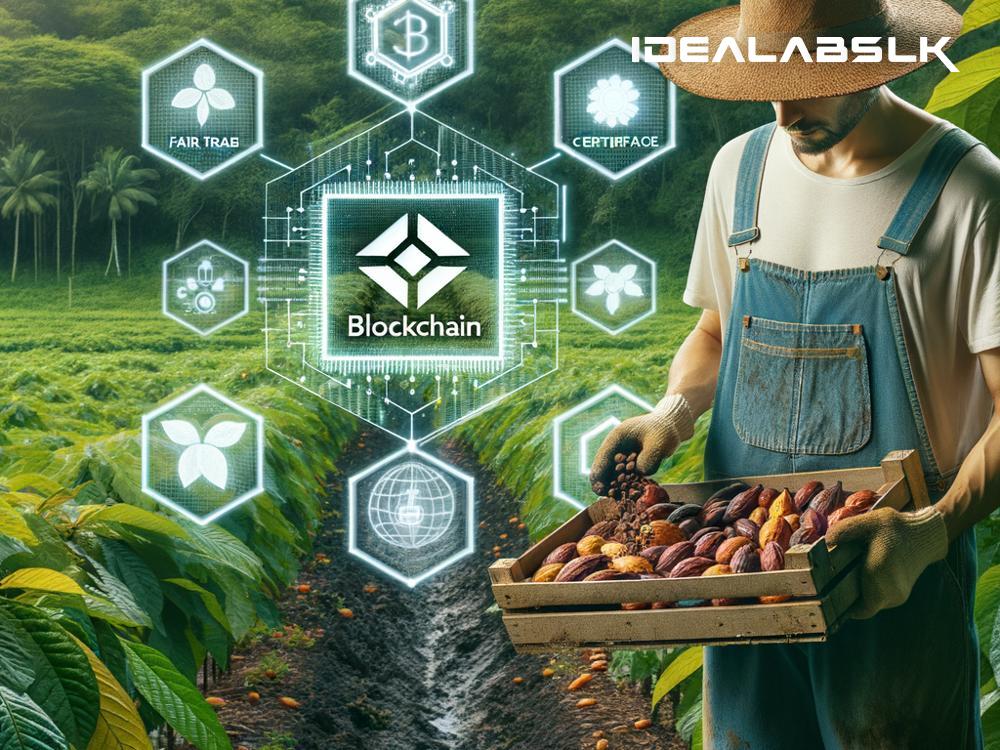How Blockchain Is Changing the Game for Cocoa Farmers Through Fair Trade
In the chocolate industry, one critical ingredient that makes those delectable treats so irresistible is cocoa. But behind the sweetness of chocolate lies the bitter truth of the challenges faced by cocoa farmers, especially in countries like Ivory Coast and Ghana, where a vast majority of the world's cocoa is produced. Many of these farmers live in poverty, not getting a fair share for their hard work. Thankfully, a modern technology called blockchain is stepping in to make a difference, paving the way for fairer trade practices in the cocoa industry.
Understanding Blockchain and Fair Trade
Before diving into how blockchain is revolutionizing the cocoa industry, let's break down what blockchain is in simple terms. Imagine a digital ledger that records transactions, like a notebook that keeps track of who gave what to whom. But, instead of being held by one person or company, this notebook is duplicated across a network of computers. Everyone can see the entries, but no single person can modify them on their own. This openness makes it incredibly secure and transparent.
Fair trade, on the other hand, is about giving back to the people who grow and produce what we consume. It ensures farmers receive a fair wage, work in ethical conditions, and practice environmentally friendly farming. It brings fairness to the equation, but verifying that fair trade principles are actually followed has been a challenge—until blockchain came into the picture.
The Role of Blockchain in Ensuring Fair Trade for Cocoa
Blockchain technology is stepping in to shine a light on the journey of cocoa from farms to your favorite chocolate bar in a way that was not possible before. Here's how it's making a difference:
1. Tracking and Transparency
Because blockchain is a type of digital ledger that records every transaction or movement of goods, it can track the journey of cocoa right from when it's harvested by farmers to when it's turned into chocolate products. This system provides a clear record that anyone on the blockchain network can verify but not alter dishonestly. So when a company says their chocolate bar is made from fair trade cocoa, they can prove it with blockchain records.
2. Ensuring Fair Payment
One of the most significant advantages of using blockchain in the cocoa industry is ensuring that farmers are paid fairly and promptly. Each transaction recorded in the blockchain includes details such as the amount of cocoa sold and the price paid. Since these records are tamper-proof and transparent, farmers are less likely to be cheated or underpaid by middlemen or companies.
3. Empowering Farmers
Blockchain technology can also offer other forms of empowerment to farmers. For example, by having a transparent record of their sales and business interactions, farmers can access credit and financial services more easily. This financial inclusion can enable them to invest in their farms, adopt better agricultural practices, and ultimately improve their livelihoods.
4. Enhancing Consumer Trust
For consumers, knowing that the chocolate bar they enjoy is not only delicious but also ethically produced is hugely valuable. Blockchain's role in ensuring transparency and fairness enhances consumer trust. People are more willing to support brands and products that contribute positively to the welfare of cocoa farmers and sustainable practices.
The Road Ahead
Integrating blockchain into the cocoa supply chain is not without its challenges. It requires significant investment in technology and training for farmers and others in the supply chain to use these systems effectively. Moreover, there's a need for widespread adoption among all stakeholders, from big chocolate brands to smallholder cocoa farmers, to truly transform the industry.
Despite these challenges, the potential benefits of using blockchain for fair trade cocoa distribution are undeniable. It offers a beacon of hope for improving the living and working conditions of cocoa farmers, ensuring they receive a fair share of the profits. As more companies and consumers demand transparency and fairness, blockchain could well be the key to a sweeter, fairer future for the chocolate industry.
In conclusion, the intersection of blockchain technology and fair trade practices in the cocoa industry represents a significant step forward in addressing long-standing issues of transparency, fairness, and sustainability. As this technology continues to evolve and its application broadens, the dream of truly fair trade cocoa could become a delicious reality for all.

